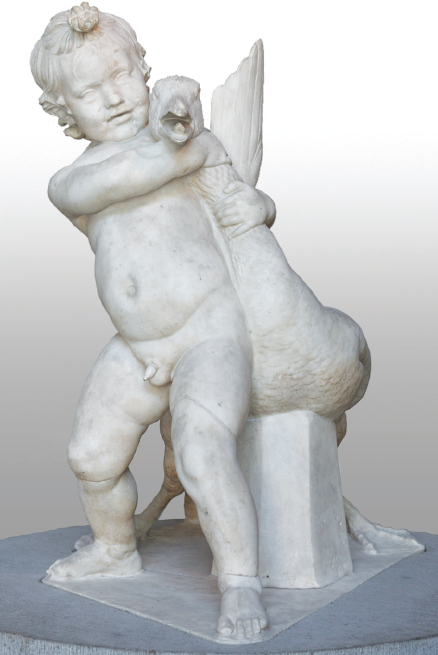Philosophy and the People
Philosophy during the Hellenic period was the exclusive province of the wealthy and educated; only they had leisure enough to pursue philosophical studies (see Chapter 3). During the Hellenistic period, however, philosophy came to touch the lives of more men and women than ever before, although it was still directed toward the educated elite. There were several reasons for this development. First, much of Hellenistic life, especially in the new cities of the East, seemed unstable and without venerable traditions. Greeks were far more mobile than they had ever been before, but their very mobility left them feeling uprooted. Second, traditional religions had declined, and there was a growing belief that one could do relatively little to change one’s fate. One could honor Tyche, the goddess of fortune, but to protect against the worst that Tyche could do, many Greeks also looked to philosophy. Philosophers themselves became much more numerous, and several new schools of philosophical thought caught the minds and hearts of many contemporary Greeks and some non-
One of these new schools of philosophical thought was Epicureanism (eh-
Epicurus also taught that individuals could attain peace and serenity most easily by ignoring the outside world and looking into their personal feelings and reactions. This ideal was one to which anyone could aspire, no matter what their social standing. Epicurus is reported to have allowed slaves and even women to attend his school, a sharp contrast with the earlier philosopher Plato. Epicureanism taught its followers to ignore politics and other worldly issues because politics led to tumult, which would disturb the soul.
Zeno (335–

Unlike the Epicureans, the Stoics taught that people should participate in politics and worldly affairs. Yet this idea never led to the belief that individuals should try to change the order of things. The Stoics were indifferent to specific political forms and believed that people should do their duty to the state in which they found themselves. To the Stoics, the important question was not whether they achieved anything, but whether they lived virtuous lives. The patient self-
The Stoics’ most significant practical achievement was the creation of the concept of natural law. They concluded that, because all people were kindred, partook of divine reason, and were in harmony with the universe, one law governed them all. This law was part of the natural order of life, not something created by individual states or rulers. Thus, natural law was an abstract matter of ethics and applicable everywhere, not something that applied to everyday political or social life.
Individualistic and individualized themes emerge in Hellenistic art and literature as well as in philosophy. Sculptors looked to the works of the classical period, such as the reliefs and statuary on the Athenian Acropolis, for their models in terms of composition but then created works that show powerful emotions and straining muscles. In contrast to the classical preference for the perfect human form, the artists and the people who bought their works wanted art that showed real people, including those suffering from trauma, disease, and the physical problems that came with aging. Hellenistic art was more naturalistic than Hellenic art–
As had Athens in the classical period, Hellenistic cities offered theater performances to their residents, paid for by the government. People tended to prefer revivals of the tragedies of Aeschylus, Sophocles, and Euripides (see Chapter 3) over newly written tragic works, but in comedy they wanted new material. This was provided by Menander (ca. 342–
>QUICK REVIEW
What larger social, political, and economic trends influenced religion and philosophy in the Hellenistic period?